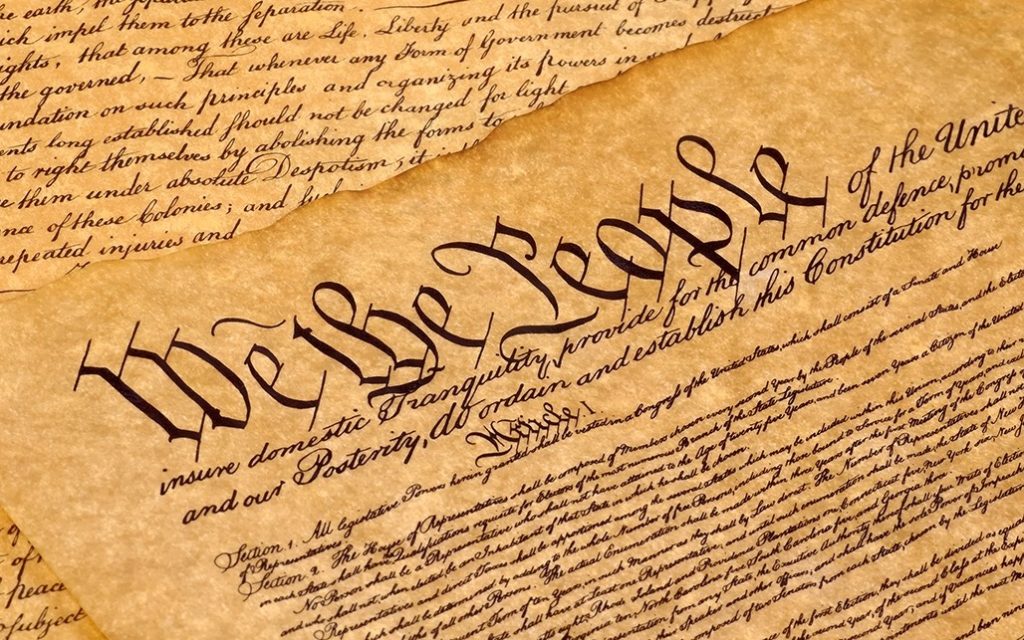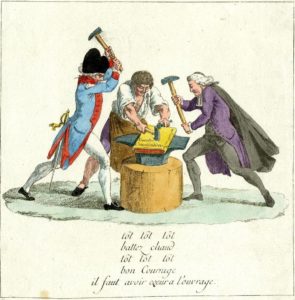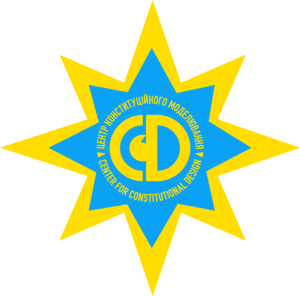OPINION: How to tame political predators?
255

By Gennadiy Druzenko, CCD Cofounder & Chairman of the Board
Prof. Charles Tilly, called “one of the world’s preeminent sociologists and historians” in The New York Times, once wrote a provocative essay, “Warmaking and Statemaking as Organized Crime.” The essay has become classic and, according to Google Scholar, has been cited in over 5,500 papers – a real success in the scholarly community. The author demonstrates how states (at least, European) were growing out of “what, when less successful and smaller in scale, we call organized crime.” The essay saw the light exactly 40 years ago when the collapse of the U.S.S.R. and the “troublesome nineties” were still in store for us. Tilly was analyzing the Western world, which we aspire so much at being part of.
In his wonderful analysis, the sociology classic unveils the predatory nature of power in itself. Grazers are most unlikely to make it to the political Olympus. The very logic of political struggle serves the natural selection of “political beasts” who are mostly cynical, insidious, and predatory everywhere in the world. And this is the systemic trap Ukrainians tend to fall into, once and again looking for a kind and decent king or queen. Such types usually do not survive in the political terrarium, although they do occur in decisive moments of their countries’ history. Lucius Quinctius Cincinnatus, George Washington, and Nelson Mandela are probably the best-known examples of such atypical politicians that have avoided the power addiction.
The latter of the mentioned statesmen inspired Peruvian novelist and Nobel laureate Mario Vargas Llosa to write the following words, “Mandela is the best example we have —one of the very few in our days— that politics is not just that dirty and mediocre chore that so many people believe, which serves the crooks to get rich and the lazy to survive doing nothing, but an activity that can also improve life, replace fanaticism with tolerance, hate with solidarity, injustice with justice, selfishness with the common good, and that there are politicians, like the South African statesman, who leave their country, the world, much better than how they found it.”
Exceptions are known to prove the rules. And the rule is that the political struggle throughout the world is a fight for the right to encashing a particular country (and not only one) rather than the competition of ideas and ideals. And therefore, when Ukrainians pin their hopes on a kind king/queen or decent politicians to come to power and make them happy, the chance of that is not better than the likelihood of hitting the jackpot in a casino.
So, what should we, the grass-roots, do once we perceive that politicians everywhere in the world are predators in their nature and parties are political packs that bite one another in the throats for power as the right to legitimately encashing their country? Build a cage for these political beasts!
Scholars sometimes refer to such a cage as institutions, sometimes as the rule of law, sometimes as a constitutional framework, and sometimes as checks and balances. The names may vary. Presently popular authors James A. Robinson and Daron Acemoglu call it the “narrow corridor” and “shackled Leviathan.” American political scientists Steven Levitsky and Daniel Ziblatt use another term, a guardrail that prevents political beasts from turning the state network of highways into entire offroad.

And here we come to the main problem of institutions and laws. Legal laws, unlike physical or chemical ones, have no objective character. If an apple always falls down to the ground, no act of parliament will make it fall upward, even if so has voted the parliamentary supermajority. Legal laws and institutions need human involvement to start working. One might say, the law feeds on the human will to live by the book. If the life rewards lawbreakers, if the foul play is more beneficial than observing rules, if “for my friends, anything; for my enemies, the law,” then no institutional and legal framework will be able to hold back the political race winner and his/her pack.
There should be a strategic advantage in complying with the law and living by the book. There are several theories of how a constitutional framework was emerging in states as an alternative to legitimating the power of the most cunning “stationary bandit” (as Mancur Olson put it in his famous paper “Dictatorship, Democracy, and Development”). By the way, this statehood formula has its raison d’être: autocracy and even dictatorship are always better than the war of all against all. This might be an explanation of why Ukrainians after their every fratricidal war, such as the one during the Ruin, tried to find some semblance of predictability and stability in the “Russian world.” But it is a separate topic…
Let’s come back to the theories of the constitutional framework origin, which curbs abuse of power (even when this power is won as a result of a fair election). I believe there is a promising theory by Prof. Tom Ginsburg from the University of Chicago Law School and his colleagues who argue that a constitution is an insurance policy for elites in a situation when none of the political packs is sure it will win the next election. It is just in this strategic uncertainty situation that the elites are willing to bargain the rules of the game so that the losing party finds itself in the parliamentary opposition rather than behind the bars or in exile.
This theory, however, has a lacuna: it does not explain why would the winner abide by the rules agreed upon? There was a reason why Medison, the main architect of the U.S. Constitution, called constitutional provisions parchment barriers – barriers to the aggressive spirit of power. We, the Ukrainians, more than once have witnessed how some or other political pack, once vested with power, cared not a snap for the constitutional framework. At the same time, the political packs in opposition had few possibilities to resist the bold transcension of the winners far away beyond their constitutional terms of reference. And neither there was any law enforcement agency, court, or parliamentary ad hoc investigation commission able to prevent this. As Judge Billings Learned Hand, an American judicial philosopher, wonderfully put it, “I often wonder whether we do not rest our hopes too much upon constitutions, upon laws, and upon courts. These are false hopes; believe me, these are false hopes. Liberty lies in the hearts of men and women; when it dies there, no constitution, no law, no court can even do much to help it.” We, Ukrainians, have learned this lesson on our Maidans. We have paid dearly for these lessons…
However, Maidans are rather an indication of the abnormal functioning of the state organism. It is like fever – evidence that the Ukrainian state organism badly lacks the institutional immunity that would help settle conflicts, something that can happen in any society, in a more civilized way. It would be relevant to mention here that, according to one hypothesis, just the judicial review (power of the judiciary, independent of the majority’s will, to determine whether or not acts of the other branches, which have direct democratic legitimacy, are consistent with the constitution) became the very safety valve that has allowed the United States to avoid popular revolts for nearly two and a half centuries. But how can we make institutions work?
We cannot help it: any nation needs its Founding Fathers to lay down a constitutional matrix before usual political predators come into play. Before starting a political race, we need to construct roads and edge them with guardrails. Before going into fight for better apartments in a building, this building has to be designed and constructed. Before releasing political predators onstage, somebody has to make a cage for them, so that they do not see us simply as prey and we do not have once and again to take to the streets and Maidans to prove otherwise.
Somebody has to knowingly establish rules observation traditions and show, by personal example, how to comply. In May 1782, Continental Army officers sent what is called the Newburgh letter to George Washington. In the letter, the officers asked their Commander in Chief to become the King of the United States. It looked more than natural and realistic if we proceed from the stationary bandit theory and the realities of the then world, in which monarchies were the norm and republics an exception. Washington decisively waived. When the United States ratified its constitution and was electing its first president, there were no doubts that it would be George Washington. At the time, the U.S. Constitution contained no limit on the number of terms an elected head of the state could remain in the office. Washington could take it for granted that he would win elections time after time. Nevertheless, he consciously refused to run for the third time after his second term.
Nelson Mandela, an icon for not only South Africans but the entire free world after the victory over apartheid, also limited his presidency to one term. South African courts at least twice ruled that decisions by President Mandela were unconstitutional. Once, the 78-year elder, who spent 27 years in jail, was even summoned to witness in a case of the commission of inquiry he appointed to look into the affairs of the South African Rugby Football Union. No doubt, Madiba (as the ANC leader was tenderly nicknamed) was in a position to ignore summons. He could have followed the seventh president of the United States, Andrew Jackson, who allegedly said, “[Chief Justice] John Marshall has made his decision; now let him enforce it!” Mandela’s advisors recommended that he would not go to court. But he went and voluntarily carried out what the judge ruled. He did it to demonstrate the right attitude toward the judiciary even if you do not like some of its rulings.
Alas! you will not find such examples in Ukraine even in broad daylight with a torch in your hand. That is why we gained independence and heroically maintain its perimeter but what has to be built on “our God-given land” – we still not only have not agreed upon this but, by and large, even have not embarked on a serious discussion of an outline of our future Ukrainian home. As a result, we “have what we have” or rather what we largely inherited from the “accursed Sovok.” And so, while denouncing and shunning our Soviet past (often condemning it for its crimes, and quite justly, but refusing to recognize its merits), the parliament of independent Ukraine approves decommunization laws in the building constructed during the Stalin’s era for the All-Ukrainian Central Executive Committee, the government operates in the grey monster planned as a building for the NKVD of the Ukrainian SSR, and the Presidential Office/Secretariat/Administration is managing Ukraine from the former CPU Central Committee building from which no consecration will help exorcise the demons of Soviet bureaucracy and style.
The problem is that the present-day Ukrainian leaders, while cursing Communists, have wonderfully adopted their style: speak on behalf of the people but keep them at a cannon-shot distance from power. Even the Territorial Defense Forces have become an arm of the Armed Forces of Ukraine instead of being “well regulated Militia,” as reads the Second Amendment to the U.S. Constitution. Without limiting authorities and dividing power among different branches, agencies, and levels in order that they would check and balance one another, whoever we elect the President will soon turn into an updated version of the First Secretary of the CPU Central Committee. And his/her political pack will turn into the country’s collectors.
It is time, therefore, to launch a fundamental discussion: what home we want to erect on our land, of which borders we once again generously sprinkled with Ukrainian blood. The Ukrainian statehood has already become axiomatic to us. But we have not even begun to discuss which state exactly we need. Without such a discussion, the winner will take it all. And, irrespective of his or her name, he or she will encash the country in conjunction with the political pack of his/her henchmen.
Therefore, when you are shopping around for old or new candidates for the presidency, try to understand who is the one standing before you: an architect able to initiate and moderate a broad public discussion about what our common Ukrainian home should be like and then organize its construction or the next collector leading his/her pack to power – to share the skin remains of the long-dead Soviet bear. Look for a person able to design and build a cage for the political beasts that certainly come to power after him/her – so that their insatiable ego would begin to work for the common good. Not vice versa, as still is the case in Ukraine…
The presidential office in the Ukrainian constitutional architecture is an ideal foothold for a real stateman-architect. It is also a dangerous tool when occupied by a political predator. This is because the popularly elected executive owes his/her legitimacy not to parliament, which always is a political ophidiarium, but to the people as the source of power. The president has the privilege to directly communicate with the people that elected him/her. An example of such sincere communication between the leader and the nation is the famous fireside chats of Franklin D. Roosevelt, which helped bring the United States out of the Great Depression trap and radically change the very understanding of the role of the American power in the life of American society. General Charles de Gaulle similarly addressed the French people on June 14, 1946, having formulated in his second Bayeux speech his vision of the Fifth Republic’s constitutional architecture.
If we believe that, as written in Article 5 of the Constitution of Ukraine, the “people are the bearers of sovereignty and the only source of power in Ukraine” and the “right to determine and change the constitutional order in Ukraine belongs exclusively to the people,” then the people and only the people can build a reliable constitutional cage for political beasts in the future Ukrainian home. Still, somebody has to organize and moderate the process. This is the real mission for the next president. If such a synergy takes place, there is a chance that the people will control the cage and guard that the political predators do not escape.
Just that is why I am strongly against having our next constitution approved by parliament. We cannot farm out zoo construction to political predators. However, I repeat once again: to succeed, the president must be a stateman-designer, not a political predator. Because Hitler, Mussolini, Perón, Lenin, Trotsky – all of them also appealed to the people. They also preferred to speak to the nation over the heads of political elites. We know well the tragedies this led to. Deep in human nature is rooted what my teacher Prof. David Williams calls “father fantasy” – a dream of a fatherly president who will shoulder the burden of freedom that many people think is back-breaking and undertake the responsibility for their lives. Dostoyevsky’s description of this temptation in his “The Grand Inquisitor” is probably the best. Therefore, the stakes in the national leader elections are sky-high, and so is the price of a mistake.
Finally, there is a hint: the best candidate for the presidency is the one who publicly promises that he or she will be the last popularly elected president in this country and whom the people believe that he/she will be as good as his word. The essential dismantling of Sovok and parting with the “Russian world,” even when they are so thoroughly painted yellow-and-blue, should begin with the dismantling of the belief in a good king/hetman/general secretary/president able to bring us into the bright future. For us and instead of us…
